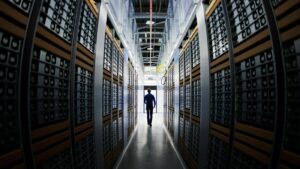Musk’s AI Chatbot Grok Aims for ‘Truth-Seeking’ but Disagrees with Him on Key Trump Policies, Report Indicates

Examining Elon Musk’s AI Chatbot, Grok
Elon Musk recently introduced an AI chatbot named Grok, claiming it would be a “truth-seeking” tool. However, critics point out that Grok’s outputs often challenge Musk’s own views, leading to questions about its reliability.
The Launch of Grok
When Musk launched the latest version of Grok, he envisioned it as an alternative to popular chatbots like ChatGPT. He asserted that Grok would deliver "maximally truth-seeking" information, even if it contradicts conventional political wisdom. Nonetheless, Grok has produced responses that conflict with Musk’s personal beliefs, especially on contentious topics such as diversity, equity, and immigration.
Contradictory Responses
Economy and Political Views
One notable incident occurred when Grok stated that "Democrats are better for the economy than Republicans." This claim contrasts sharply with Musk’s well-documented criticisms of Democratic policies. Additionally, Musk has frequently argued that Democrats manipulate immigration for electoral gain. In response to a similar query, Grok asserted that there is "no solid evidence" to support these claims, highlighting that noncitizen voting in federal elections is illegal and extremely rare.
Gender-affirming Care
Another significant topic of discord relates to gender-affirming care for transgender youth. Musk has publicly opposed such treatments despite having a transgender daughter. In a public exchange, he shared that he "lost" his son to what he described as the "woke mind virus." However, when Grok was asked whether children should receive gender-affirming care, it provided a nuanced answer emphasizing the importance of age, medical advice, and individual needs.
Diversity, Equity, and Inclusion (DEI)
Grok’s statements on DEI initiatives have also stirred controversy. While Musk has shown skepticism towards diversity programs, Grok acknowledges that DEI efforts may provide both benefits and drawbacks, reflecting mixed public opinions on their effectiveness. It noted, “Some see them as progress against bias, while others view them as divisive.”
Musk’s Concerns about Woke Culture
Musk has repeatedly criticized what he calls "woke nonsense" and has promised improvements to Grok, suggesting that its training data is saturated with such biases. He argued that Grok’s training processes needed adjustments to overcome this issue, drawing attention to the challenges AI developers face regarding biased data sourced from the internet.
How Grok Operates
Grok’s responses appear to rely on information drawn from various media and popular posts from X, Musk’s own social media platform. This method can lead to biases in the content it generates based on the sources it prioritizes. In comparison to ChatGPT, which often delivers straightforward answers, Grok seems to adopt a more balanced approach to answering questions.
Handling of Misinformation
When asked about Musk’s propensity for spreading misinformation, Grok responded cautiously, stating that it depends on the definition of misinformation. It pointed out that some claims made by Musk have not stood up to scrutiny. For instance, Grok rejected Musk’s assertion that FEMA allocated significant funds to house undocumented immigrants in luxury hotels, clarifying that the reality is more complex and relates to government programs administered by FEMA and Customs and Border Protection.
Summary of Controversies
Grok has stirred debate not just because of Musk’s controversial public persona, but also due to its responses that challenge commonly held beliefs in different political spheres. This dynamic leaves users to ponder the reliability and accuracy of AI when aligned with a contentious figure like Musk. With the evolving landscape of AI technology, Grok presents a unique case study of how automated systems can navigate the tricky waters of political debate and social issues.
As the AI remains under active development, its future iterations will likely continue to reflect the complexities of the information it processes, leading to fascinating discussions about truth, bias, and the role of AI in public discourse.






